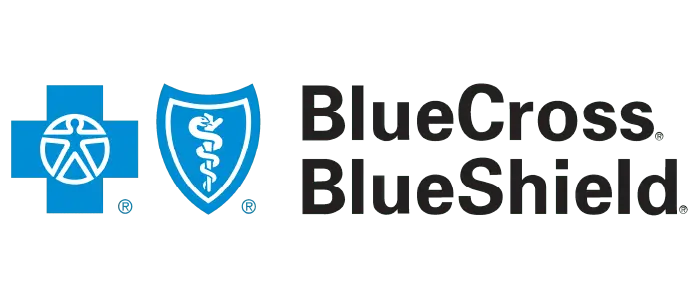
Heroin addiction is a severe substance use disorder (SUD) marked by significant psychological and physical dependence. Heroin is a semi-synthetic opioid extracted from the poppy plant. While heroin is an illegal substance, many other opioids may be obtained legally with a doctor’s prescription. Regardless of how opioids are obtained, it is critical to understand that they are highly addictive and can lead to serious addiction.
Opioids alleviate pain by blocking or lowering the number of pain signals sent to the brain. They also stimulate the release of endorphins in the brain, making the user feel happy, euphoric, or high. Because of these qualities, heroin and other illegal opioids are highly addictive.
If you or someone you care about is battling heroin addiction, getting professional help as soon as possible is crucial.
Heroin addiction can lead to various physical, behavioral, and emotional changes. That’s why it is important to seek professional medical help when suffering from heroin addiction. Several types of heroin addiction treatment options are available since some people will benefit more from one treatment than another. Because each person’s unique factors and circumstances contribute to their addiction, so individualized treatment is the most effective way to help individuals overcome their heroin use disorder.
The following are some of the most common forms of treatment available at a heroin addiction treatment center.
The symptoms of heroin addiction are determined by a variety of factors, including the amount and frequency of heroin use, as well as differing from person to person. However, the following physical, psychological, and behavioral/social signs are among the indicators that a person may have a dangerous heroin addiction.
Barbiturates are a class of drugs with three common uses: treating seizures, helping with sleep problems, and inducing anesthesia during surgery. These medicines work by calming the brain and nerves. However, they can be harmful if not used carefully. So, always follow your doctor’s advice when taking them.
Barbiturates are rarely used for anxiety today. Doctors prefer newer drugs like benzodiazepines or antidepressants. Barbiturates have risks of addiction and overdose, making them less suitable for anxiety disorder treatment. They are, however, still commonly used for epilepsy. If you use barbiturates for epilepsy, ensure your medication is stored somewhere your children cannot access.
Barbiturates act as CNS depressants. Different types of barbiturates were once used as sedatives, anesthetics, and to treat epilepsy. However, today, these medications are less common for medical purposes due to safety concerns like addiction and overdose risk. Doctors now prefer safer alternatives like benzos for anxiety and sleep issues.
Because of the effects of heroin on the brain and body, the substance has the potential to cause significant physical and psychological dependency, which can lead to addiction. When a person gets addicted to heroin, they will display a variety of signs, including:
If you observe the above-mentioned signs in yourself or a loved one, it’s time to seek heroin addiction treatment. The more severe the signs and symptoms, the more serious the heroin addiction.
To recover from heroin addiction and live a happy, sober life, seek professional treatment at The Haven Detox. Contact us at (561) 328-8627!
There is no one cause of heroin addiction; however, several factors usually contribute to the addiction. Some of the causes and risk factors for heroin addiction are as follows:
Genetics alone won’t lead someone to get addicted to heroin, but if they start using heroin, genetics may increase the likelihood that an addiction will develop. A person becomes more susceptible of addiction if they have a family history of addiction, especially if they have a family member who suffers from a substance use disorder. Additionally, some people also have specific personality traits that may make them more prone to addiction once they start using heroin.
Heroin use changes the way the brain experience pleasure, and if a person takes heroin on a regular basis, the nerve cells begin to change. When these changes take place, a person will require more heroin to compensate for the missing neurotransmitters. Regular heroin use also inhibits brain functions such as information processing, impulse control, and communication. As a result of their heroin addiction, a person may compromise their safety or others.
Some people use heroin to self-medicate and relieve mental health symptoms. Heroin can give temporary respite from unpleasant symptoms and feelings, but it often aggravates mental health disorders.
Peer pressure, drug exposure, and family attitudes and traditions are all environmental factors that contribute to the development of heroin addiction. For example, if a person has friends who use heroin, they may be tempted to take the drug while socializing with them in order to feel included.
When people are anxious or lonely, they may resort to drugs to help them deal with those unpleasant feelings. Once they find temporary relief from the feelings of stress or loneliness, they will begin to rely on heroin anytime they need to cope with unpleasant feelings.
If a person has previously used drugs and developed an addiction, they are more likely to develop an addiction to heroin. People who have previously used opioids or prescription medicines may develop a heroin addiction because the substance affects the opioid receptors in the brain. Heroin usage can cause cravings, relapse, and increase the chance of co-occurring addictions.
Other risk factors and causes for heroin addiction include a lack of social support, a history of trauma, and low self-esteem. The likelihood of heroin addiction increases when multiple risk factors and causes come together. When an individual gets addicted to heroin, it can become difficult to stop without professional assistance.
Heroin use has a variety of short- and long-term impacts on the brain and body. When a person becomes addicted to heroin, it has a detrimental impact on their physical, emotional, and social well-being. It’s critical to understand the consequences of heroin so you can recognize when it’s time to get treatment for yourself or a loved one.
Short-term effects of heroin addiction include:
The short-term effects of heroin might last for a few hours. Once these effects wear off, a person may feel depressed and desire to take heroin again to boost their mood. Repeated heroin use may swiftly change brain chemistry and lead to addiction.
The impact of heroin addiction on a person’s health is determined by a number of factors, including the person’s current health status, weight, sex, volume of drug intake, method of drug intake, length of abuse, concurrent use of alcohol or other drugs, and the presence of an underlying psychiatric condition.
After heroin use, a person may experience the following health-related effects:
As an individual continues to use heroin, another health problem develops, which is a physical dependency. Whether the substance is legal or illegal, physical dependency is the body’s reaction to the drug’s continued presence. Withdrawal and tolerance are the two main hallmarks of physical dependency. Surprisingly, the body adapts to drugs to promote survival, but the body can undermine survival via the natural process of tolerance. Over time, a person will require more of a similar substance to attain the desired effects. As the quantity of the drug increases, so does the risk to the user’s health.
Drug addiction and relationships are intertwined. The addict’s change in character and behavior toward their loved ones determines how substance abuse affects relationships. The effects of heroin abuse on the brain include changes in mood, cognitive function, and even physical changes. The longer an addiction last, the more likely it is that the person will change. This can result in putting a serious strain on relationships, causing them to weaken. There are numerous effects of heroin addiction on relationships, such as:
Many employees struggle to perform at their full potential due to the harmful negative of heroin. Employees who are addicted to heroin are less productive, take more sick days, and are more prone to workplace accidents and injuries. They are also more prone to have conflicts with coworkers and supervisors, as well as make errors.
Other effects of heroin addiction on employment include:
Heroin abuse can impair your judgment abilities and lower your inhibitions, resulting in poor choices and risky behaviors or situations, such as:
This program is designed for teens—every part of it. With a maximum of just 22 teens in our care at any time, our team has the space to build meaningful, personal relationships with each adolescent and stay closely connected to every family.

Medical Director
Over 40 years in addiction medicine, with a focus on adolescent care for nearly three decades

Clinical Director
Leads trauma-informed therapy with a personalized approach

Program Director
Brings 20 years of youth-focused experience in family systems and crisis stabilization

Professional Chef
Prepares nourishing meals that create community and comfort, with over 25 years of experience

Creative Arts Therapist
Helps teens process emotions through music, art, and expression
Families come from all over the country for one reason: the care here works. Your teen isn’t just treated. They’re seen, supported, and given the tools to grow.
When detoxing from heroin, you may be concerned about how long the drug will remain in your system. Several factors influence how long heroin stays in your bloodstream, including:
In general, the withdrawal period will begin within 12 hours of your last dose. The physical withdrawal symptoms usually go away within a week, but the psychological symptoms might last longer. Official treatment will assist you in managing these symptoms as well as developing the skills necessary to overcome your triggers and avoid relapse.
If a person gets addicted to heroin and suddenly stops using, they can suffer withdrawal symptoms that, if not treated, can be severe and life-threatening. Withdrawal symptoms are unpleasant and might discourage someone from quitting heroin. Among these withdrawal symptoms are:



Many More
It’s time to make a change for your teen. Get answers today.
100% Confidential
You’ve tried what you can. If nothing else has helped, this may be the step that finally moves things forward.
You don’t have to figure it out alone. Reach out today to talk with someone who understands. We’ll help you decide if Never Alone is the right fit, and walk you through what happens next.